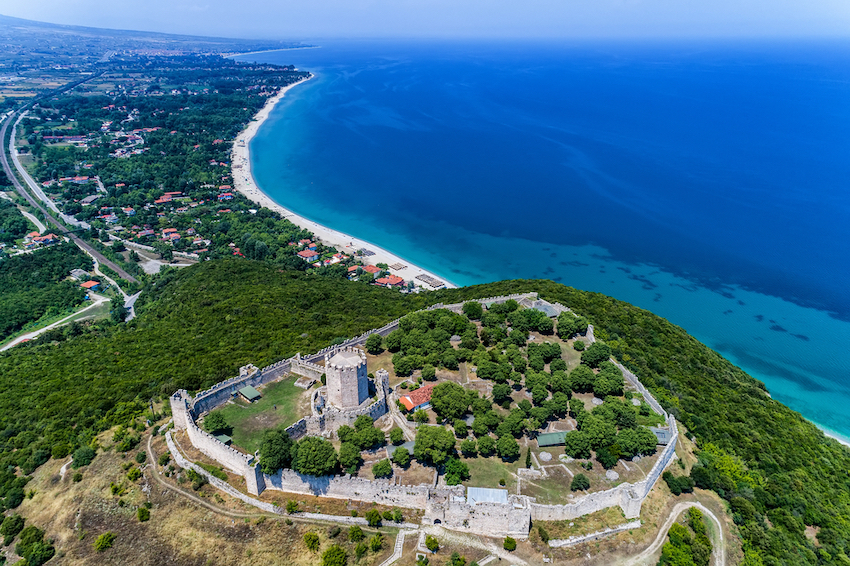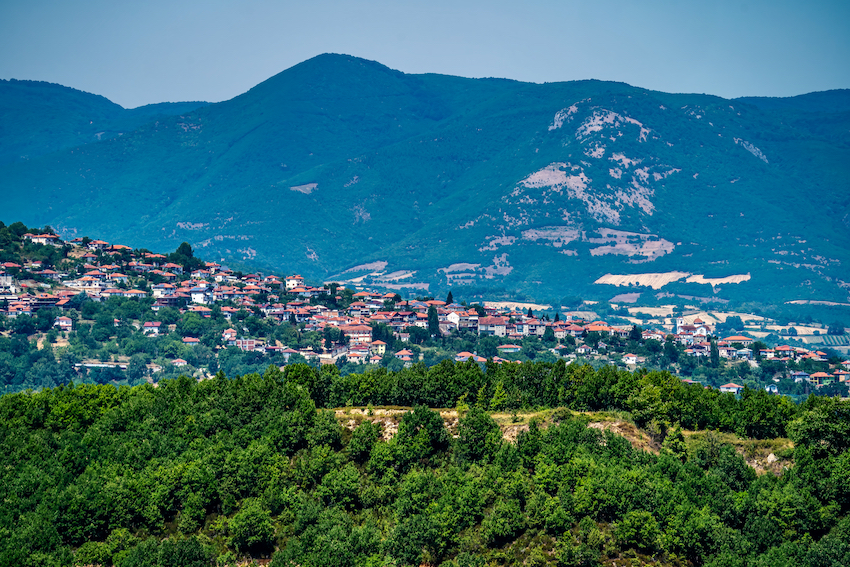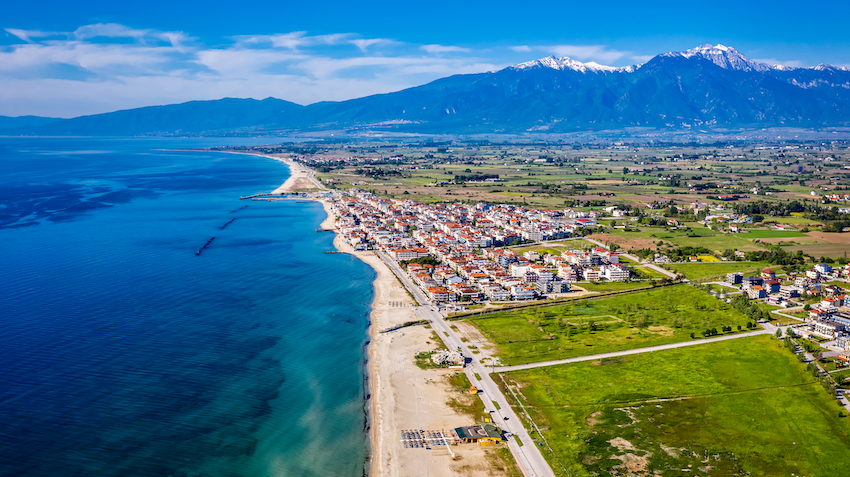
AGRICULTURAL POTENTIAL IN THE MUNICIPALITY OF KATERINI
LOCATION
The municipality of Katerini, located in the Central Macedonia region of Greece, is an area with significant agricultural potential. Thanks to its favourable climatic conditions, fertile soils and rich agricultural tradition, Katerini plays an important role in the Greek agricultural sector. This study aims to present in detail various aspects of agriculture in the municipality of Katerini, including natural conditions, agrarian structure, types of crops and livestock, challenges and future prospects….
NATURAL CONDITIONS
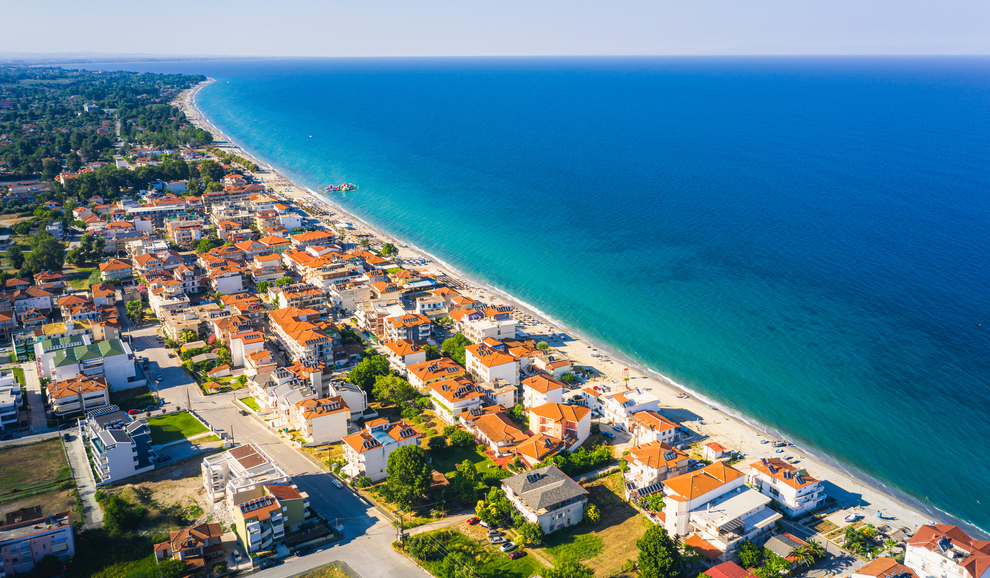
Soils in the municipality of Katerini are varied but generally characterised by high fertility. In low-lying areas, alluvial soils predominate, which are rich in nutrients and ideal for growing vegetables, fruit and cereals. In the higher-lying areas, limestone and clay soils can be found, which are also suitable for agriculture, although they require proper management to maintain their fertility. The climate of the municipality of Katerini is typically Mediterranean, characterised by mild, wet winters and hot, dry summers. Average annual rainfall is around 600-700 mm, which is sufficient for most crops, although there may be dry periods during the summer season that require irrigation. The average annual temperature is around 16-17°C, with the coldest months January and February and the warmest July and August.

AGRARIAN STRUCTURE

The agrarian structure in the municipality of Katerini is dominated by small and medium-sized family farms of a few to a few tens of hectares. Large farms over 50 hectares are rare, which is characteristic of the Mediterranean region where small farms traditionally dominate.Small farms are often diversified, growing many types of crops and rearing animals, allowing for diversification of income sources.
Farms in the municipality of Katerini can be divided into several types according to their specialisation.
Vegetable farms: specialise in growing vegetables such as tomatoes, cucumbers, peppers and lettuce. These vegetables are often grown in greenhouses to extend the growing season.
Fruit farms: they mainly grow fruits such as peaches, nectarines, apples, pears, kiwis and grapes. Fruit production is an important agricultural sector in the municipality of Katerini and part of the production is exported.
Cereal farms: grow cereals such as wheat, barley and maize. These cereals are the staple food for both humans and livestock
Olive farms: they cultivate olive trees that produce olive oil, an important export product and a staple of Mediterranean cuisine.
AGRICULTURAL CROPS
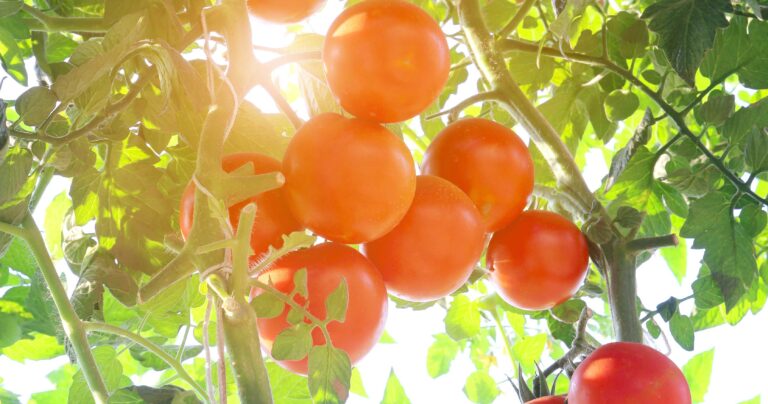
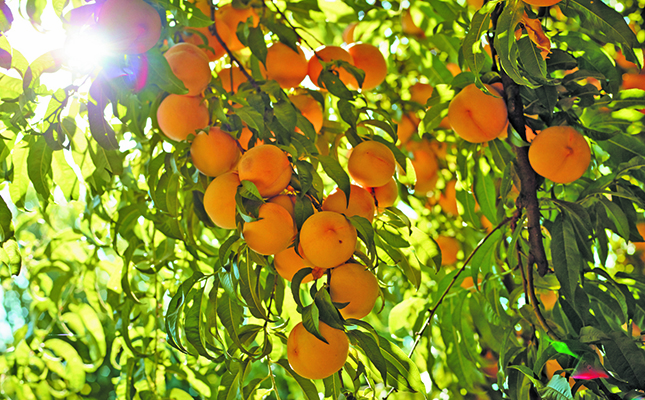
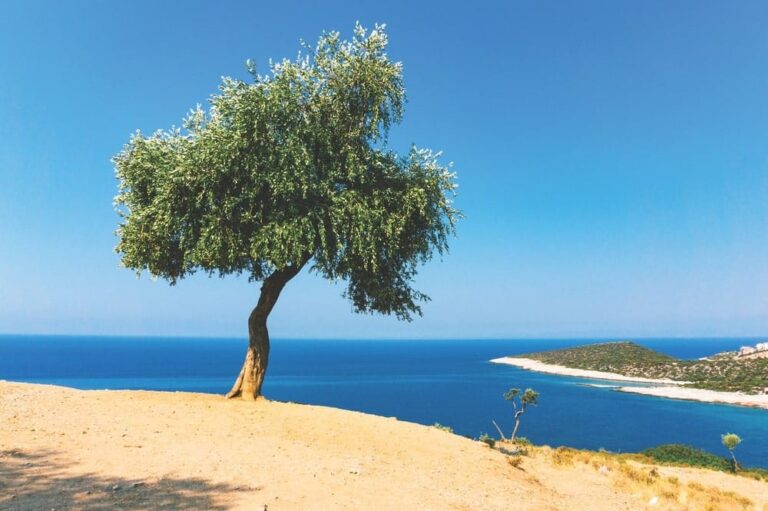

Vegetable cultivation is one of the main agricultural sectors in the municipality of Katerini. Thanks to the favourable climatic conditions and the use of modern technologies such as greenhouse cultivation and irrigation systems, vegetable production is highly productive. The most important vegetables grown in the region are tomatoes, cucumbers, peppers, lettuce and onions. These vegetables are not only supplied to local markets, but also exported to other European countries.
Fruit-growing plays a key role in the agriculture of the municipality of Katerini. The region is particularly known for its production of peaches, nectarines, apples, pears, kiwis and grapes. Thanks to the use of modern cultivation techniques and suitable climatic conditions, these fruits are of high quality and are valued on both domestic and foreign markets. In particular, peaches from Katerini are known for their excellent taste and aroma.
Olive tree cultivation and olive oil production is a traditional and important agricultural sector in the municipality of Katerini. The olives are harvested by hand and the olive oil produced in the region is of high quality, often certified as an organic product. Olive oil from Katerini is valued for its taste and health benefits, and its production is an important source of income for local farmers.
The production of cereals, such as wheat, barley and maize, is an important part of agriculture in the municipality of Katerini. These cereals are the basis of nutrition for both humans and livestock. Cereal cultivation is often integrated with other agricultural activities, allowing for efficient resource management and increased farm profitability.
ANIMAL HUSBANDRY
Cattle farming, especially dairy farming, is well developed in the municipality of Katerini. The region supplies a significant proportion of Greek milk and dairy products such as cheese and yoghurt. Dairy farms use modern technologies such as milking systems, automatic feedlots and animal health monitoring to increase productivity and improve product quality.
Pig farming is also important for agriculture in Katerini. Pork production takes place both on small, family farms and on larger, specialised farms. Modern breeding methods, including genetic selection and health control, contribute to increased production efficiency and improved meat quality.
Poultry production, including chickens, turkeys and ducks, is mainly developed in the lowland areas of the municipality of Katerini. Poultry farms use advanced technologies in feeding, breeding and processing, which allows the production of high quality poultry meat.


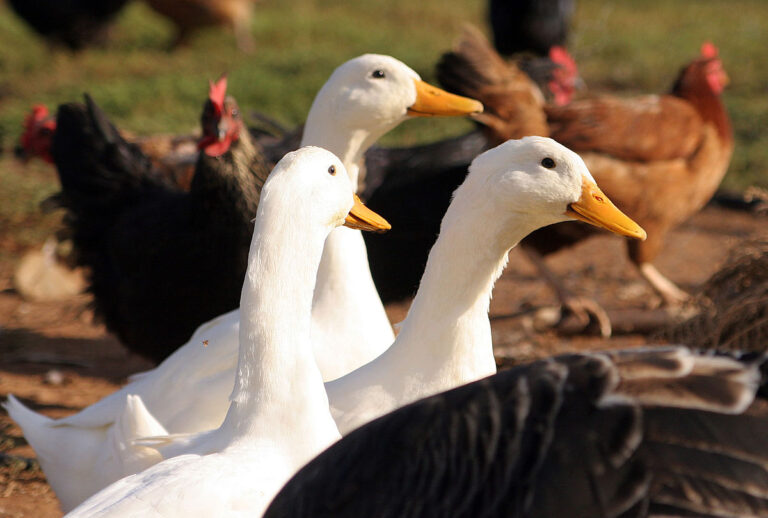
CHALLENGES: CLIMATE CHANGE
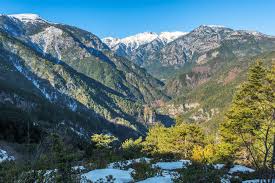


Climate change is one of the biggest challenges for agriculture in the municipality of Katerini. An increase in the frequency of extreme weather events, such as droughts, downpours and heat waves, negatively affects yields and the quality of agricultural products. Farmers need to adapt their cultivation and farming practices to minimise the risks associated with unstable weather conditions. The implementation of irrigation systems, conservation agri-techniques and sustainable soil management is becoming increasingly necessary.
Urbanisation: the municipality of Katerini is furthermore experiencing intensive urbanisation, leading to a reduction in agricultural land. The development of urban infrastructure and housing puts pressure on agricultural land and farmers have to compete for land with construction investors, which often leads to an increase in the price of agricultural land. A land use strategy is needed to preserve agricultural areas and support local food production.
Ageing population: the ageing of the farming population and the lack of young staff is another challenge for agriculture in the municipality of Katerini. Young people often choose other career paths, leading to a lack of successors on farms. It is necessary to promote agriculture as an attractive and profitable profession and to support young farmers through training, advisory and financial programmes.
INNOVATION AND DEVELOPMENT PROSPECTS
The implementation of modern technologies in agriculture is key to increasing the efficiency and competitiveness of farms in the municipality of Katerini. Precision farming technologies such as GPS systems, drones, soil sensors and automatic agricultural machinery allow for precise resource management, resulting in higher yields and lower production costs.
Organic farming is becoming increasingly popular in the municipality of Katerini. Organic farms use natural cultivation and breeding methods, eliminating chemical pesticides and artificial fertilisers. Organic products are increasingly popular with consumers, creating new market opportunities for farmers. Support for organic farming from the government and NGOs, in the form of subsidies and training programmes, is crucial for the further development of this sector.
Agrotourism is becoming increasingly popular in the municipality of Katerini, offering an additional source of income for farmers. Agritourism farms attract tourists seeking relaxation in nature and an authentic experience of rural life. Agrotourism also promotes local agricultural products and supports the development of local communities.

